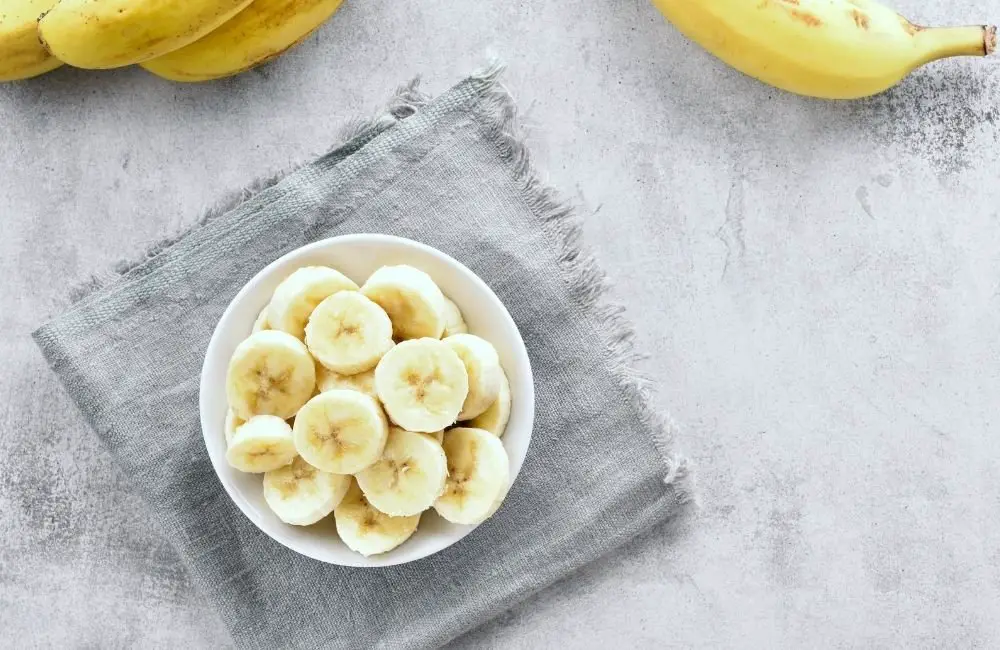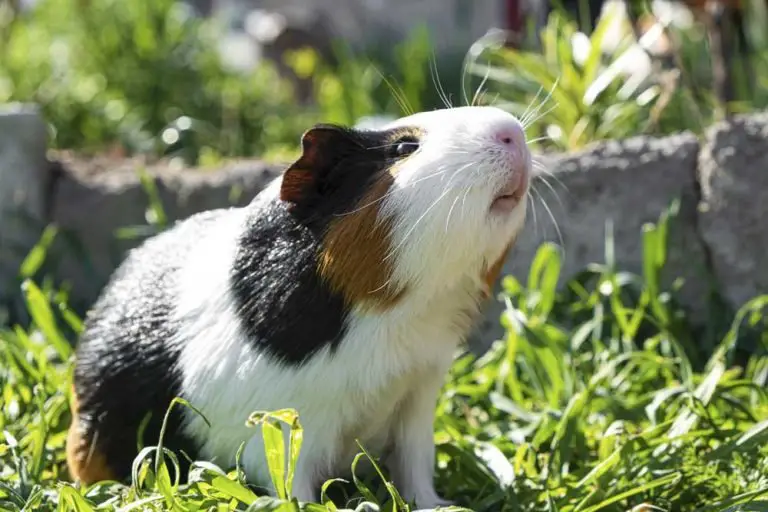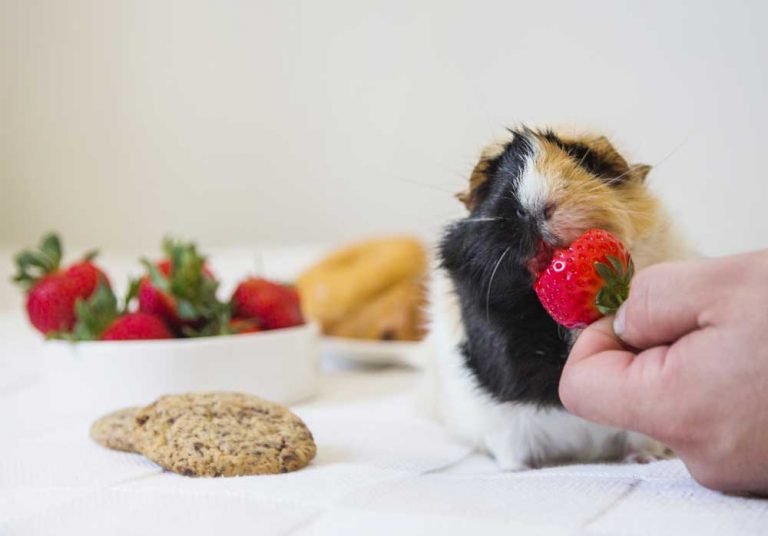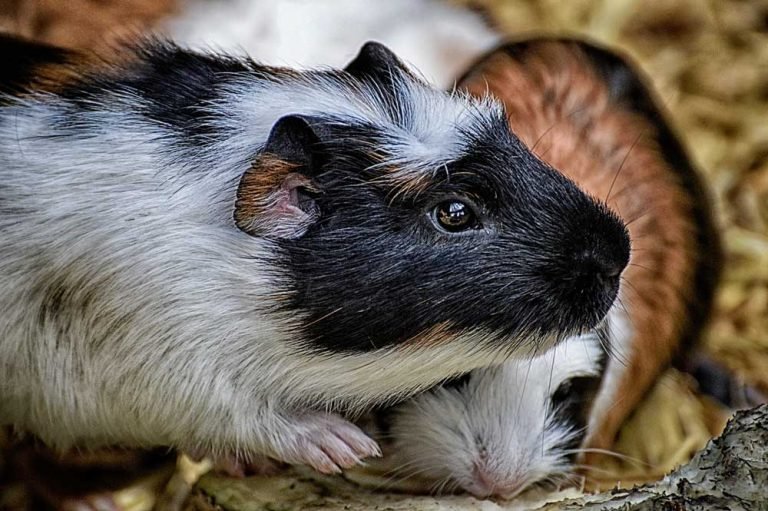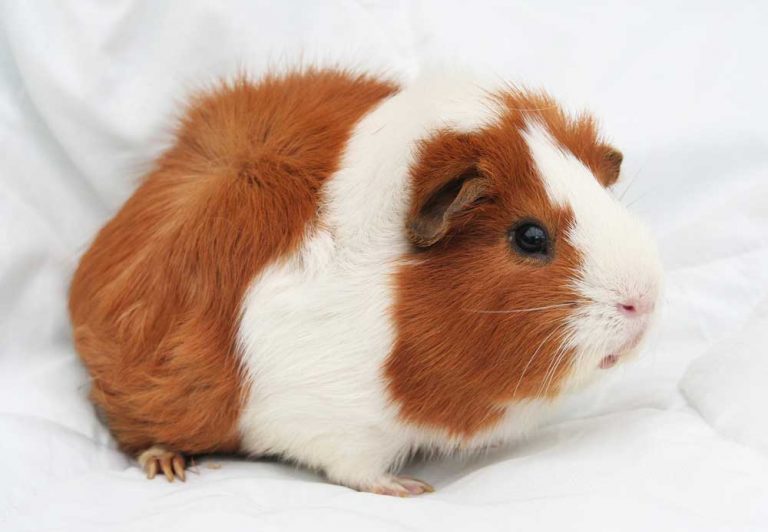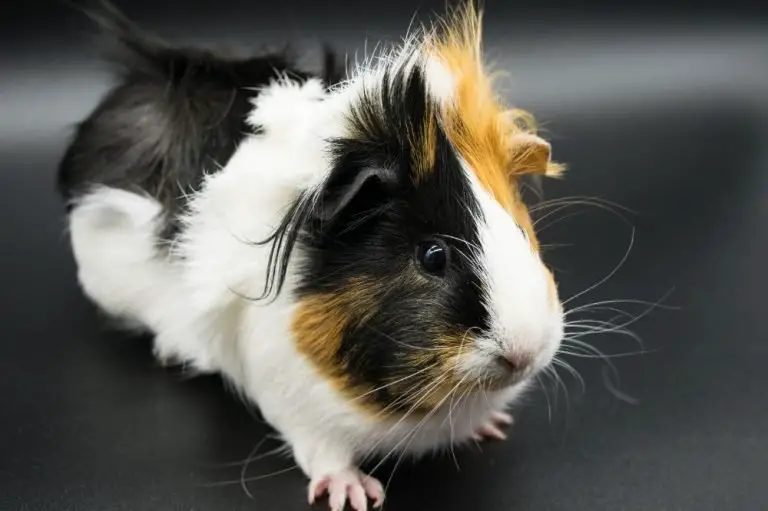Can Guinea Pigs Eat Bananas? [Feeding Guide!]
Guinea pigs like having their treats. Whether it’s having their scheduled regular treat serving, getting a reward for something good they’ve done, or a random meal supplement, guinea pigs love their owners a tad more whenever they get a treat.
Treats can be given as veggies like pieces of cucumber, carrots, and broccoli. They can also be given as fruits like slices of apples, strawberries, and watermelons.
What about bananas? Are they safe and healthy for guinea pigs? Can they be fed to guinea pigs? Let’s see.
Can guinea pigs eat bananas?
Guinea pigs can eat bananas. They are sweet and highly nutritious fruits that can be fed to them with or without their peels. Bananas are packed with nutrients like Vitamin C, fiber, Vitamin B6, manganese, and potassium which are essential for maintaining good health in guinea pigs. However, they should be fed in moderation as they are high in sugar.
Do guinea pigs like bananas?
Bananas are really sweet and most guinea pigs will develop a love for them at the first taste. Some will like the full bananas with the peels on, while others will prefer the bananas without peels.
It’s good to provide the bananas and the peels separately at first to see if they like them to know whether you’ll be feeding them with peels or not. Peels are generally safe and good as they are low in sugar.
Nutrients in bananas
Bananas are a delicious treat and they provide your pet with nutrients at the same time. Nutrients like:
Vitamin C
Just like humans, guinea pigs are incapable of producing their own Vitamin C. It is therefore vital to feed them with foods rich in the vitamin to supplement their dietary needs.
Bananas are high in Vitamin C which is essential in protecting guinea pigs against scurvy and in fastening the healing of wounds.
Fiber
Guinea pigs have a delicate digestive system that may encounter some digestion problems if enough fiber is not available.
Bananas are very high in fiber. Feeding them to guinea pigs aids in digestion and helps to prevent constipation.

Potassium
Potassium is a mineral that works in preventing kidney stones and reducing blood pressure in your pet.
Vitamin B6
Vitamin B6 in bananas helps in turning food into energy and assists in the maintenance of the overall health of guinea pigs.
Manganese
Manganese regulates blood sugar and controls growth in cavies.
How many bananas should guinea pigs eat?
Guinea pigs should only have a small slice of banana per serving. Bananas may seem soft and potentially harmless to guinea pigs but that’s not true.
Bananas are very high in sugar and all sugary foods should be fed to guinea pigs in small quantities no matter the nutrients in them. All servings should be done once per week too.
Your guinea pig may love bananas to the point of wheeking and popcorning delightedly. Do not fall this, it’s a trap.
If you let your guinea pig trick you into feeding them more banana slices over and over, then you will both have not-so-good outcomes to deal with.
Effects of feeding guinea pigs too much bananas
Just like with all fruits that have lots of sugar, bananas should be moderated while being fed to guinea pigs because if they are not, they may lead to the following effects:
Obesity
Bananas have a lot of sugar content which will lead to weight gain if the fruit is eaten in high quantities. A guinea pig may gain weight continuously leading to obesity.
A guinea pig that’s obese is prone to some health conditions. They will have problems with their movement and grooming capabilities too.
Diabetes
A guinea pig that’s gained a lot of weight will easily acquire insulin resistance leading to diabetes.
Damaged teeth
Guinea pigs have big teeth that are ever-growing and in constant need of shedding. If your guinea pig is usually dipping their teeth in sweet foods like bananas, it will lead to dental problems like teeth damage.
Diarrhea
Too many sugary foods lead to diarrhea in guinea pigs. Bananas may make your guinea pigs have diarrhea either due to the high sugar content or if you overfeed them the food during their first serving.
When feeding something new, it’s good to start with a really small piece until your pet’s stomach gets used to it.
How to feed bananas to guinea pigs
While picking a banana for your guinea pet, avoid the unripe ones as they are high in starch. Pick a nice ripe banana that you would personally eat.
Wash it thoroughly to rid it of any bacteria and pesticides that could be stuck on the peel. Remove the peel if you are not feeding it to your pet or if your pet doesn’t like banana peels.
Cut up the banana into multiple small slices. If it’s the first time you are feeding a banana to your guinea pig, ensure that the slices are even smaller.
First food introductions should always be done in the smallest of quantities to observe the reactions your guinea pig’s body will have. Feeding large quantities of new foods may bring about diarrhea as the stomach is not used to digesting them.
Give a small amount at first and keep a keen eye on your pet for any reactions. If they experience stomach upsets and diarrhea, consider reducing the size of fruit the next time or opting for a different treat altogether.
Banana alternatives
If your guinea pig doesn’t like bananas or you want to try out other fruit alternatives, you can feed them;
- Strawberries – they are tasty and high in Vitamin C, fiber, and potassium.
- Oranges – they contain high amounts of Vitamin C and fiber content.
- Apples – not only are they wonderfully crunchy treats but also good sources of Vitamin C and fiber.
Conclusion
Guinea pigs can eat bananas though in small quantities due to their high sugar content. Bananas have important nutrients for guinea pigs like Vitamin C, fiber, and potassium. They can be fed whole with their peels as the peels are safe to eat.
- Can Guinea Pigs Eat Lawn Grass? Find out now!
- Can Guinea Pigs Eat Wet Grass? Find out now!
- Can Guinea Pigs Eat Weeds? Explained
- Can Guinea Pigs Eat Watermelon? (Benefits & Risks)
- Can Guinea Pigs Eat Strawberries? [Feeding Guide!]

